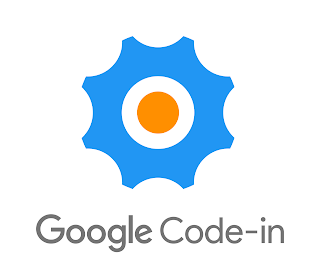We are excited to welcome 29 open source organizations to mentor students as part of
Google Code-in 2019. The contest, now in its tenth year, offers students ages 13-17 from around the world, an opportunity to learn and practice their coding skills while contributing to open source projects—all virtually!
Google Code-in starts for students on December 2nd this year! Students are encouraged to research and learn about the participating organizations ahead of time. You can get started by clicking on the links below:
Apertium – A free/open-source machine translation platform.
Australian Open Source Software Innovation and Education – Australian umbrella organization for open-source projects.
BRL-CAD – Computer graphics, 3D modeling, 3D printing, and rendering!
CCExtractor Development – Accessibility tools with a focus on subtitles.
CircuitVerse.org – Have fun exploring logic circuits right from your browser!
CloudCV – Make AI research more reproducible.
Copyleft Games – Tools and engines for making games.
Drupal – Content management software used to make many of the websites and applications you use every day.
Fedora Project – Advance Free/Open Source Software and content.
FOSSASIA – Developing open source software applications and open hardware together with a global developer community from its base in Asia, improving people’s lives and create a sustainable future.
Haiku – Operating system that specifically targets personal computing.
JBoss Community – Community of open source projects primarily written in Java.
Liquid Galaxy project – A remarkable panoramic system and visualization tool.
MetaBrainz Foundation – Crowd sourced open data projects: MusicBrainz, BookBrainz, ListenBrainz, AcousticBrainz, CritiqueBrainz and Cover Art Archive.
Open Roberta – Online IDE introducing kids to the world of coding by teaching them how to program robots with NEPO®.
OpenMRS – Write Code, Save Lives — Open source medical records platform improving health-care in resource-constrained environments.
OpenWISP – Network management system aimed at low cost networks: from public wifi, to university wifi, mesh networks and IoT.
OSGeo – An umbrella organization for the Open Source Geospatial community.
Public Lab – Open hardware and software to help communities measure and analyze pollution.
R Project for Statistical Computing – R is a free software environment for statistical computing and graphics.
SCoRe Lab – Research lab that seeks sustainable solutions for various problems in developing countries.
Sugar Labs – Learning platform and activities for elementary education.
Systers, an AnitaB.org community – Helping women find their potential in code. You are not alone.
TensorFlow – An open-source machine learning framework for everyone.
The Julia Programming Language – A fresh approach to Technical Computing.
The Mifos Initiative – FinTech non-profit leveraging the cloud, mobile, and open source community to deliver digital financial services to the world’s 3 billion poor and underbanked.
The ns-3 Network Simulator Project – A discrete event network simulator for Internet systems, research, and education.
The Terasology Foundation – An open source voxel world - imagine the possibilities! Makers of video games and a small slew of libraries & frameworks for game development.
Wikimedia – The non-profit foundation dedicated to bringing free content to the world, operating Wikipedia and maintaining the MediaWiki software.
These 29 organizations are working diligently to create thousands of tasks for students to work on, including code, documentation, design, quality assurance, outreach, research and training tasks. The contest starts for students on December 2nd.
You can learn more about GCI on the
contest site where you’ll find
Frequently Asked Questions,
Important Dates and other helpful information, including the
Getting Started Guide.
Want to chat with other students, mentors, and organization administrations about the contest? Check out our
discussion mailing list. We can’t wait to get started!
By Radha Jhatakia, Google Open Source








